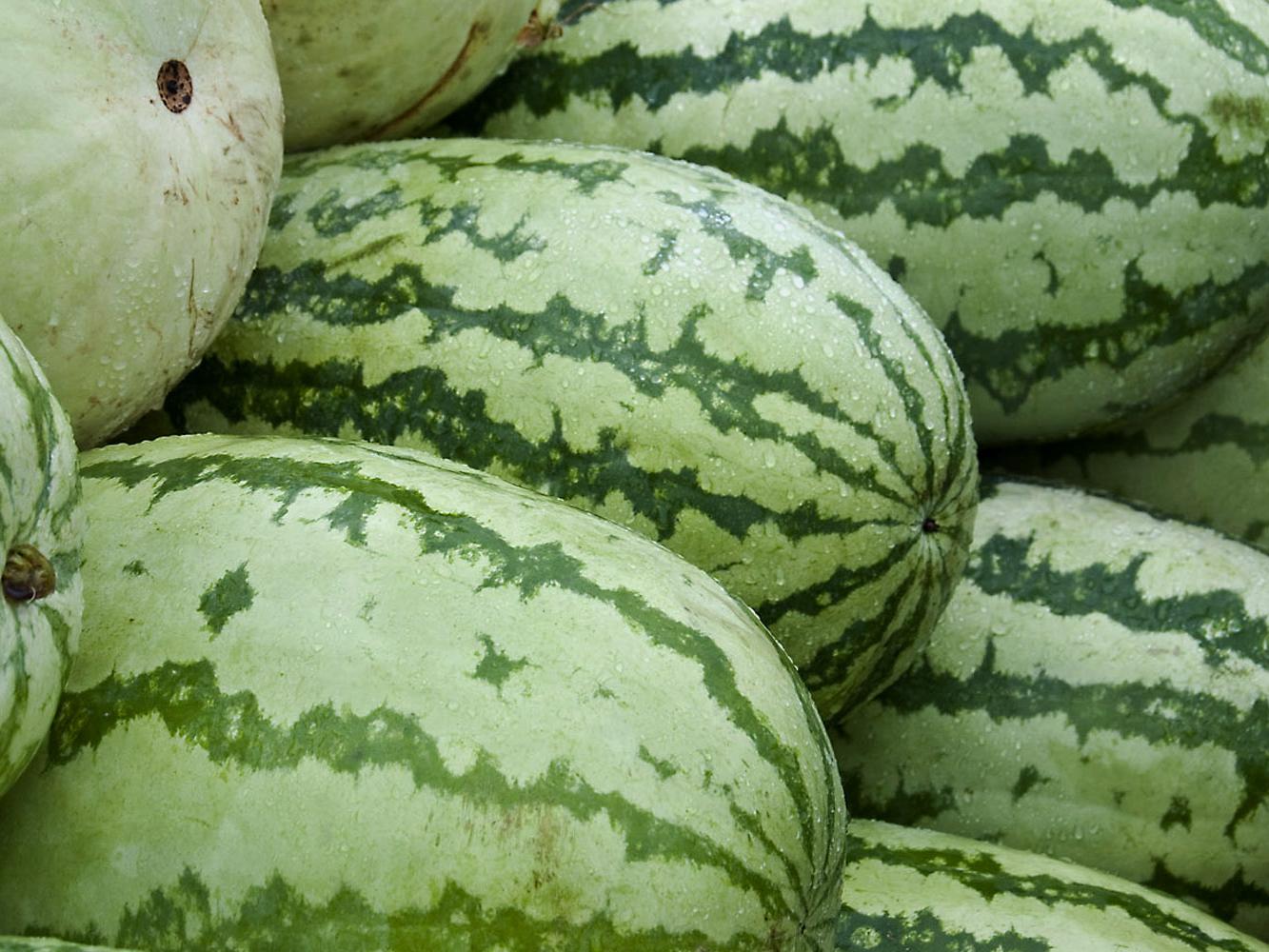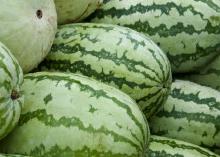Information Possibly Outdated
The information presented on this page was originally released on July 2, 2010. It may not be outdated, but please search our site for more current information. If you plan to quote or reference this information in a publication, please check with the Extension specialist or author before proceeding.
Plenty of watermelons for Mississippi families
MISSISSIPPI STATE -- Good growing conditions are contributing to a bumper crop of tasty watermelons for Mississippians.
David Nagel, a Mississippi State University Extension Service horticulturist, said rains and cool temperatures delayed plantings but warm temperatures later contributed to rapid development. Harvests began in mid-June and peak each year around the Fourth of July.
“We’ve had plenty of warm temperatures and sunshine to produce large and sweet watermelons this year,” Nagel said. “The more sunny days we have, the sweeter the melons.”
Mike Steede, retiring George County Extension director, said watermelon acreage increased more than 15 percent this year. Growers had plenty of rain.
“The extra moisture could have increased diseases, but growers are proactive and control problems before they develop,” Steede said. “The rains helped develop large, juicy melons.”
Because watermelons are so plentiful, especially in south Mississippi, the prices have been low.
“There are just too many melons in the system. Florida’s crop was delayed and matured about the same times as ours,” he said. “Farmers have faced poor prices, especially for seedless watermelons that are marketed to grocery stores.”
Otis Young of Starkville and his father have set up a roadside stand with melons they purchased from Farm Fresh Inc. in Webster County. His prices range from $5 for smaller melons to $8 for large ones.
“We’ve had good business – no trouble selling whatever we bought,” Young said. “We are planning to take some down to New Orleans soon.”
Myron May, co-owner of Farm Fresh, said he is glad his produce is popular. He and his brother planted fewer acres this year to make sure they didn’t grow more than they could sell.
“Marketing crops is harder for small growers than for larger commercial productions,” May said. “We mostly sell to small stores, individuals and peddlers.”
May said his growing season was not quite as favorable as farmers are reporting in other parts of the state. He had to use irrigation earlier in the season, and now disease pressure is picking up as the crop matures.
“We’ve worked with growers around Lucedale to bring some of their melons up here to sell,” he said. “It works out pretty well for all of us.”



